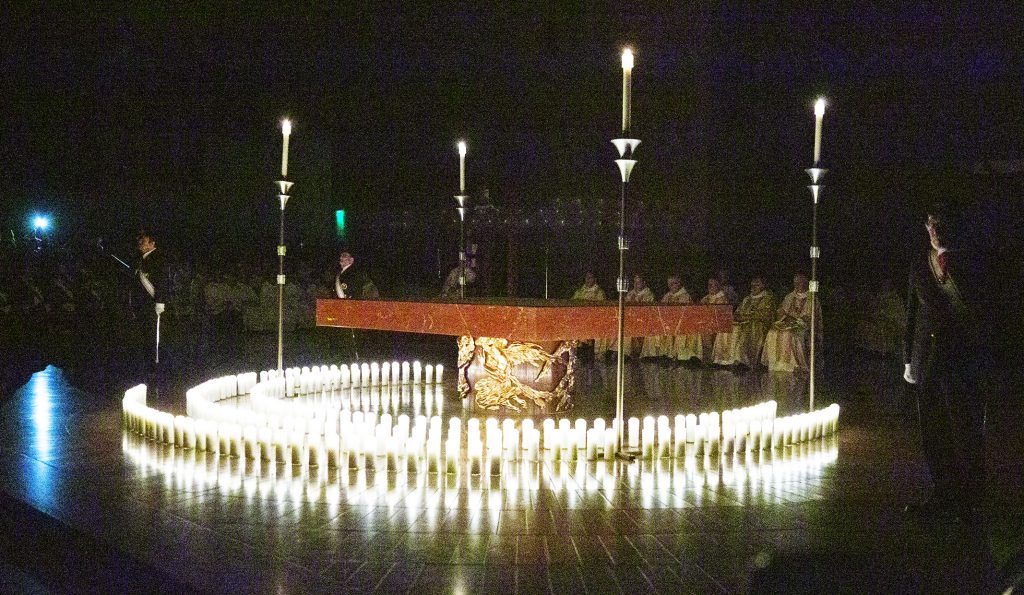This year will mark a turning point in our long journey to build a culture of life in America.
The U.S. Supreme Court seems ready to reverse, or at least sharply restrict, its 1973 Roe v. Wade decision, which established a constitutional “right” to abortion.
A post-Roe America will not mean the end of abortion. It will return the issue to the states to enact their own laws regulating the practice.
My hope is that we will come together and seize this opportunity to create a post-Roe America where human life is cherished and cared for, and where the family is recognized as the true foundation of a just and prosperous society.
Abortion was among the first social evils opposed by the early Church. That commitment has never changed down through the centuries.
In the past half-century of legal abortion in America, the Catholic Church has sought to create a culture of care and compassion for women facing challenging pregnancies, and to promote alternatives to abortion such as adoption.
At the heart of everything we do is our belief that human life is sacred, that every person is created in the image of God and redeemed by the love of Jesus Christ.
As Pope Francis has said, we can never allow abortion to be regarded as simply a “private” or “religious” matter.
Abortion attacks the “sacredness of human life,” the Holy Father reminds us, and societies that deny life to the unborn threaten the foundation of all other human rights.
The Church has a duty to bring this perspective to our national conversation about the kind of America we want to create after Roe.
We need to insist on what St. Pope John Paul II called “the necessary conformity of civil law with the moral law.”
American history proves that when our laws do not reflect moral law, it leads to the worst injustices. We have seen this with slavery, segregation, abortion, and euthanasia.
America after Roe must dedicate itself again to the vision of our Declaration of Independence.
Our laws and policies must protect the God-given dignity and rights of the human person, which no majority vote or court decision can ever again be allowed to deny.
A post-Roe America must also question whether women “need” access to abortion to exercise their full and equal rights in society — professionally, economically, or politically.
In her important study, “The Rights of Women: Reclaiming a Lost Vision” (Notre Dame, $42), Catholic lawyer and historian Erika Bachiochi shows that this assumption is not true.
In fact, she argues, widespread access to abortion has given our society the “excuse” not to create family-friendly workplaces that would enable mothers and fathers to balance the demands of work and family.
Abortion in America remains a basic question of social justice.
Nearly 90% of abortions are sought by single women, and abortion rates are dramatically higher in low-income and minority communities.
It is no coincidence that the era of legalized abortion has also been the time when America’s families have broken down. With each passing year, we see more women and children living in poverty, and more children being born into single-parent homes.
The years ahead will require bold thinking on how we can support women and children and promote strong marriages and families, which are essential to ensuring children’s health and economic well-being.
We should be talking about expanding adoption, child care and foster care, and jobs that pay a “just wage.”
In a post-Roe America, we need to rebuild a culture of authentic human love, where sex is rooted in marriage, in the beautiful commitment of husbands and wives to share a lifetime together.
St. Pope Paul VI was prophetic in seeing that promoting access to birth control, including abortion, would harm women and children, and lead to confusion about the meaning of the human person and human relationships.
Now is the time to restore the truth about human fraternity and solidarity. We are not isolated individuals. We are born into a beautiful web of family and social relationships of mutual care, each of us depending on others as others depend on us.
Pray for me and I will pray for you.
And as we renew our commitment to build a more fraternal America after Roe, I hope you will join me for our annual OneLife LA procession and family festival on Jan. 22.
OneLife LA will be followed by our annual Requiem Mass for the Unborn. Together, let us spend the whole day celebrating the beautiful truth that all human life is sacred!
May our Blessed Mother Mary give us strength in this moment to build the civilization of love that Jesus calls us to, and that our nation’s founding documents promise.

